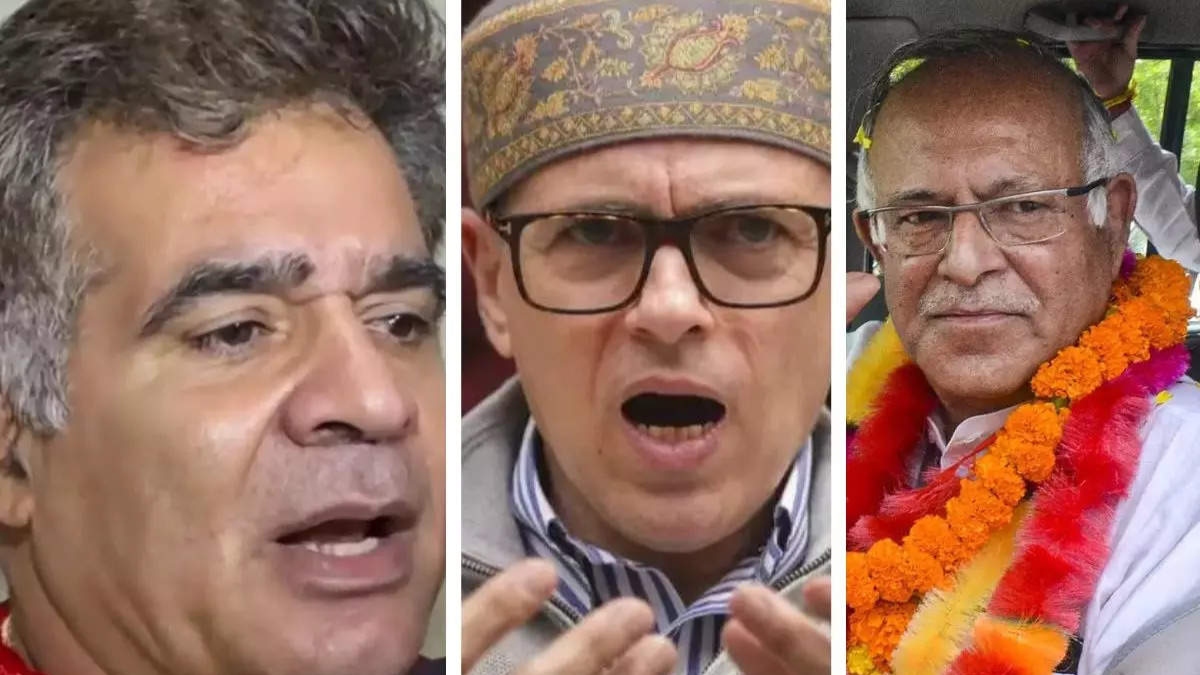As Jammu and Kashmir stares at a hung assembly, according to a majority of exit polls, the promises of ‘Naya Kashmir’ appear to have crumbled for the Bharatiya Janata Party (BJP). The dream of a prosperous, peaceful, stable and politically integrated Kashmir – envisioned by the Narendra Modi-led government at the Centre post the abrogation of Article 370 – has failed to translate into electoral gains for the saffron party.
Despite a massive push towards development, the BJP remains largely untrusted among the voters in the Kashmir Valley.
Advantage For INDIA Bloc
Almost all exit polls have predicted a significant lead for the National Conference (NC)-Congress alliance, which is expected to win anywhere between 40 and 48 seats in the 95-member assembly. On the other hand, the BJP is expected to perform better in the Hindu-dominated Jammu, possibly winning between 27 and 31 seats, however, it continues to struggle in the Valley, where it has historically failed to make inroads.
While the BJP led by PM Modi and Amit Shah hoped to break this trend with its ‘Naya Kashmir’ narrative, the exit poll results indicate that the party has failed to win the hearts and minds of the people in the region. Whereas the INDIA bloc – comprising Omar Abdullah’s NC, Congress, and other regional forces – appears to have secured a big advantage in the Valley, shattering the BJP’s ambitions to appoint a Hindu Chief Minister this time.
Failure To Connect With The Kashmiri ‘Awam‘
The BJP’s failure in Jammu and Kashmir stems from its inability to connect with the aspirations and problems of the ordinary Kashmiris. The abrogation of Article 370 – a move hailed by the BJP as a masterstroke in national integration – has clearly backfired among Kashmiris who see it as an insult to their identity and autonomy. The party’s efforts to rebuild trust through tall promises – jobs and development projects – were overshadowed by a sense of loss and alienation.
The Perception Problem
There are clearly no takers of the Narendra Modi government’s promise of a ‘Naya Kashmir’. A major factor behind this disconnect is the failure to address the emotional and symbolic weight of the scrapping of Article 370’s. For the BJP, Article 370 was an obstacle to Kashmir’s full integration into India, but for many Kashmiris, it was a pillar of their dignity and special status within the Union.
The BJP’s ambitious developmental rhetoric did not sufficiently resonate with the Valley’s emotional and political landscape, which gave an advantage to regional parties like NC and the PDP led by Mehbooba Mufti. The two parties succeeded in portraying the BJP as an “outsider” attempting to undermine Kashmiri identity. This narrative, coupled with the BJP’s tough anti-separatist stance, has only deepened the divide between the party and the electorate.
Counter-Terror Operations
The BJP’s approach to security has also been a double-edged sword. On one hand, its tough stance on terrorism and separatism has been praised in some quarters; on the other, many Kashmiris perceive these measures as heavy-handed and repressive. The region has seen curfews, internet blackouts, ban on social media and clampdowns on political dissent – all of which have further fueled resentment and pushed potential voters away from the BJP.
While the BJP may have improved the overall security environment, its inability to balance this with respect for civil liberties has eroded its credibility in the Kashmir Valley. The perception that the BJP rules through fear, rather than dialogue, still continues to undermine its efforts to gain a foothold in the region.
Broken Promises Of Jobs & Investments
Perhaps the most glaring shortfall of the BJP’s ‘Naya Kashmir’ vision has been its failure to deliver on promises of economic revitalization. Post scrapping of Article 370, the party made big promises assuring people of massive investments and job opportunities, particularly for the educated but unemployed youth of the Valley. However, the gap between promise and action has been stark, with little visible progress on the ground.
This economic stagnation has further alienated the people, who feel that the BJP has not fulfilled its commitments. The disconnect between the BJP’s development rhetoric and the ground economic reality of the ordinary Kashmiris has made it difficult for the BJP to gain any substantial support in the Valley.
The Limits Of Alliance Politics
In a bid to expand its presence in Jammu and Kashmir, the BJP stitched fresh alliances with newer players like Apni Party led by Syed Altaf Bukhari and Sajjad Lone’s People’s Conference. However, these alliances failed to deliver any electoral gains for the BJP. These parties, despite their regional relevance, were unable to mount a serious challenge to the dominant NC-PDP axis, leaving the BJP largely isolated in the Valley.
Lessons For The BJP
The Jammu and Kashmir assembly polls offer several critical lessons for the BJP as it looks ahead. First and foremost, the party must acknowledge that the removal of Article 370, while it may be popular in other parts of India, has deeply fractured its relationship with the Valley’s electorate. Moving forward, the BJP will need to strike a more delicate balance between security and civil liberties, ensuring that its policies do not alienate the very people it seeks to win over.
Moreover, the BJP must rethink its development strategy. Mere promises of investment and jobs are insufficient; the party must deliver visible economic improvements if it hopes to regain credibility. The people of Kashmir need to see real progress on the ground, not just lofty rhetoric from Delhi.
Finally, the BJP must recognize that winning in Jammu and Kashmir requires more than just political alliances; it requires a deep, sustained engagement with the people of the Valley. Until the BJP addresses the emotional and symbolic grievances of the Kashmiri people, the lotus is unlikely to bloom in the Valley’s troubled soil.













